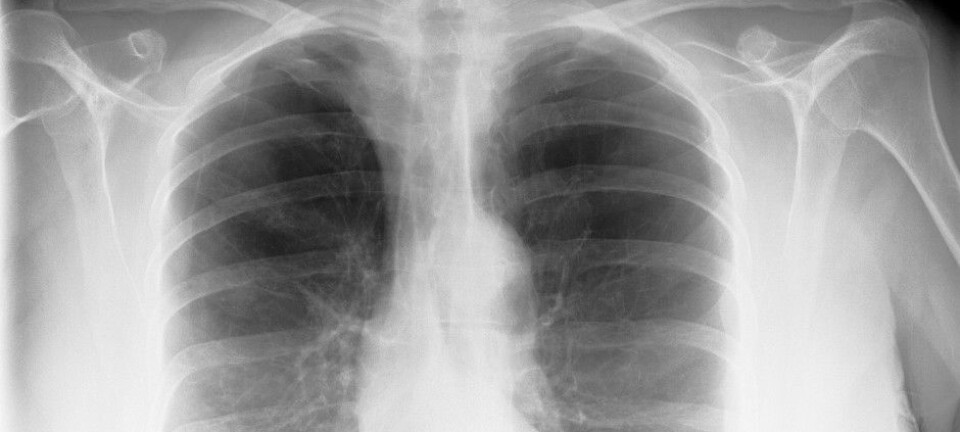
Vitamin D can boost immune system’s fight against one of the world’s biggest killers
New study shows how vitamin D could help millions of people who are currently at risk of contracting tuberculosis. But more studies are needed, say scientists.
New research gives hope to millions of people from the developing world who are still at risk of contracting tuberculosis.
Something as simple as a vitamin-D supplement could perhaps offer protection from the deadly disease, which killed approximately two million people in 2015.
Vitamin D helps the immune system to fight the tuberculosis bacterium, says co-author Carsten Geisler, professor and head of the Department of Immunology and Microbiology, University of Copenhagen, Denmark.
“Our study suggests that patients infected with tuberculosis can measure their vitamin D levels. If these levels are low, then based on our results, these patients should be given vitamin D,” writes Geisler in an email to ScienceNordic.
Geisler conducted the study along with postdoc Martin Kongsbak-Wismann and Ph.D. student Anna Rode—also from the Department of Immunology and Microbiology.
So far, they have tested the effect of vitamin D on cells from blood donors at Rigshospitalet, Denmark. But they are yet to conduct clinical trials.
A paradox that vitamin D works
It came as a surprise that vitamin D appeared to have a positive effect on the immune system’s ability to fight tuberculosis, says Kongsbak-Wismann.
“When you are infected with the tuberculosis bacterium, your immune system produces a molecule called interferon gamma, which helps to fight the infection. Vitamin D closes down the production of this beneficial molecule. So how can taking vitamin D be an advantage?” he says.
After numerous experiments, the scientists discovered an explanation for this apparent paradox.
Adding the chemical interleukin-12, which is naturally produced in the body during the tuberculosis infection and increases production of interferon gamma, meant that the additional vitamin D could suddenly boost the immune system.
“We added interleukin-12, which is usually present during a tuberculosis infection, and then the production of interferon gamma was not hampered by the vitamin D to the same degree as before. In that way, vitamin D can counteract the hampering effect that tuberculosis normally has on the immune system,” writes Geisler.
More studies are needed
The study is interesting and compelling but enters into a controversial debate on the effect of vitamin D, says Professor Jens Lundgren from the Department for Clinical medicine at the University of Copenhagen.
Research in vitamin D is controversial because the data in general point in many different directions, says Lundgren.
“There’s no doubt that people with low levels of vitamin D have poorer odds against the infectious disease than people with normal levels. But we lack evidence documenting that people [benefit from] taking vitamin D. We need to investigate this in clinical trials before we can say anything precise,” he says.
The study points towards a positive effect of vitamin D in the fight against tuberculosis and offers hope for new treatments, writes Geisler.
At the same time, he emphasises that many studies are necessary for documenting the effect of the vitamin.
“Vitamin D supplements can be a relatively easy and cheap treatment, especially in poorer countries, where tuberculosis is more widespread and treatment options are sparse. It’s likely that it could help the immune system response with the fight against tuberculosis, but bigger clinical trials are necessary before we can recommend the beneficial effects of vitamin D with certainty,” writes Geisler.
-------------------------
Read more in the Danish version of this article on Videnskab.dk
Translated by: Catherine Jex











